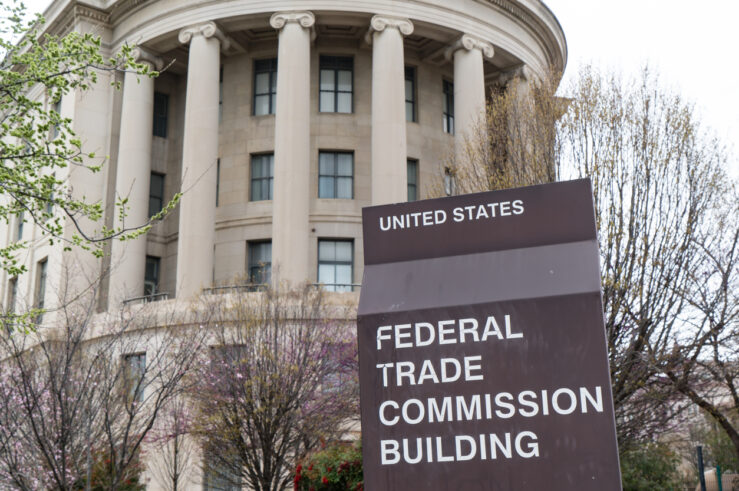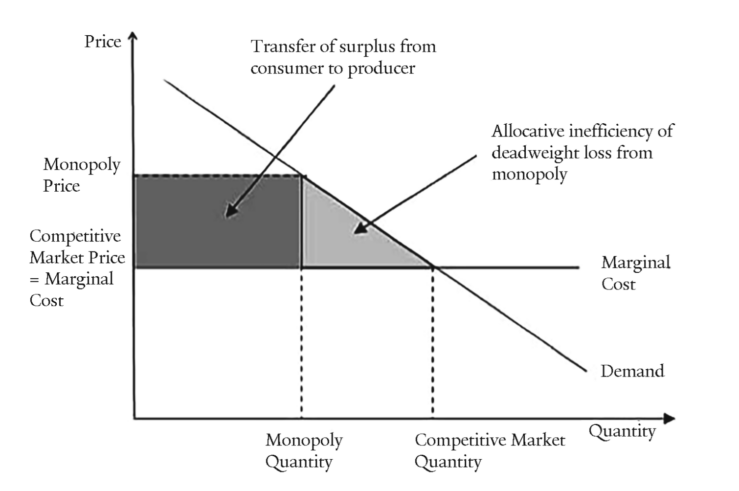Khan & Slaughter Make ITC Filing Supporting Policies that Would Undermine SEPs and US Innovation
Federal Trade Commission (FTC) Chair Lina Khan recently joined with FTC Commissioner Rebecca Slaughter to file a “written submission on the public interest” in the U.S. International Trade Commission (ITC) Section 337 proceeding concerning imports of certain cellular-telecommunications equipment covered by standard essential patents (SEPs). SEPs are patents that “read on” technology adopted for inclusion ... Khan & Slaughter Make ITC Filing Supporting Policies that Would Undermine SEPs and US Innovation
Chair Khan’s Latest Flawed Perspective on Mergers Ignores Empirics and Sound Economics
Federal Trade Commission (FTC) Chair Lina Khan missed the mark once again in her May 6 speech on merger policy, delivered at the annual meeting of the International Competition Network (ICN). At a time when the FTC and U.S. Justice Department (DOJ) are presumably evaluating responses to the agencies’ “request for information” on possible merger-guideline ... Chair Khan’s Latest Flawed Perspective on Mergers Ignores Empirics and Sound Economics
Labor Antitrust Analysis Should Focus on Actual Anticompetitive Agreements
Biden administration enforcers at the U.S. Justice Department (DOJ) and the Federal Trade Commission (FTC) have prioritized labor-market monopsony issues for antitrust scrutiny (see, for example, here and here). This heightened interest comes in light of claims that labor markets are highly concentrated and are rife with largely neglected competitive problems that depress workers’ income. ... Labor Antitrust Analysis Should Focus on Actual Anticompetitive Agreements
Concentration Study Further Undermines Narrative that US Competition Has Sharply Declined
A new scholarly study of economic concentration sheds further light on the flawed nature of the Neo-Brandeisian claim that the United States has a serious “competition problem” due to decades of increasing concentration and ineffective antitrust enforcement (see here and here, for example). In a recent article, economist Yueran Ma—assistant professor at the University of ... Concentration Study Further Undermines Narrative that US Competition Has Sharply Declined
Lina Khan’s Privacy Proposals Are at Odds with Market Principles and Consumer Welfare
The Federal Trade Commission (FTC) is at it again, threatening new sorts of regulatory interventions in the legitimate welfare-enhancing activities of businesses—this time in the realm of data collection by firms. Discussion In an April 11 speech at the International Association of Privacy Professionals’ Global Privacy Summit, FTC Chair Lina Khan set forth a litany ... Lina Khan’s Privacy Proposals Are at Odds with Market Principles and Consumer Welfare
FTC UMC Rulemakings Would Prove Legal Failures
Federal Trade Commission (FTC) competition rulemakings, like spring, are in the air. But do they make policy or legal sense? In two commentaries last summer (see here and here), I argued that FTC competition rulemaking initiatives would not pass cost-benefit muster, on both legal grounds and economic policy grounds. As a legal matter, I stressed ... FTC UMC Rulemakings Would Prove Legal Failures
Suggested Redline Edits to the DOJ’s Letter to Judiciary Committee Leadership
The Biden administration finally has taken a public position on parallel House (H.R. 3816) and Senate (S. 2992) bills that would impose new welfare-reducing regulatory constraints on the ability of large digital platforms to engage in innovative business practices that benefit consumers and the economy. The administration’s articulation of its position—set forth in a March ... Suggested Redline Edits to the DOJ’s Letter to Judiciary Committee Leadership
Toward a Dynamic Consumer Welfare Standard for Contemporary U.S. Antitrust Enforcement
For decades, consumer-welfare enhancement appeared to be a key enforcement goal of competition policy (antitrust, in the U.S. usage) in most jurisdictions: The U.S. Supreme Court famously proclaimed American antitrust law to be a “consumer welfare prescription” in Reiter v. Sonotone Corp. (1979). A study by the current adviser to the European Competition Commission’s chief ... Toward a Dynamic Consumer Welfare Standard for Contemporary U.S. Antitrust Enforcement
Antitrust Policy and National Security Interests
U.S. antitrust policy seeks to promote vigorous marketplace competition in order to enhance consumer welfare. For more than four decades, mainstream antitrust enforcers have taken their cue from the U.S. Supreme Court’s statement in Reiter v. Sonotone (1979) that antitrust is “a consumer welfare prescription.” Recent suggestions (see here and here) by new Biden administration ... Antitrust Policy and National Security Interests
The Internationalization of Due Process, Federal Antitrust Enforcement, and the Rule of Law
The acceptance and implementation of due-process standards confer a variety of welfare benefits on society. As Christopher Yoo, Thomas Fetzer, Shan Jiang, and Yong Huang explain, strong procedural due-process protections promote: (1) compliance with basic norms of impartiality; (2) greater accuracy of decisions; (3) stronger economic growth; (4) increased respect for government; (5) better compliance ... The Internationalization of Due Process, Federal Antitrust Enforcement, and the Rule of Law
FTC-DOJ RFI on Merger Guidelines: The Agencies Should Proceed with Caution
The Jan. 18 Request for Information on Merger Enforcement (RFI)—issued jointly by the Federal Trade Commission (FTC) and the U.S. Justice Department (DOJ)—sets forth 91 sets of questions (subsumed under 15 headings) that provide ample opportunity for public comment on a large range of topics. Before chasing down individual analytic rabbit holes related to specific ... FTC-DOJ RFI on Merger Guidelines: The Agencies Should Proceed with Caution
Crusade Against ‘Big Meat’ Is Latest Example of Misguided Effort to Use Antitrust as Anti-Inflation Tool
As a new year dawns, the Biden administration remains fixated on illogical, counterproductive “big is bad” nostrums. Noted economist and former Clinton Treasury Secretary Larry Summers correctly stressed recently that using antitrust to fight inflation represents “science denial,” tweeting that: There is no basis in economics for expecting increases in demand to systematically larger price ... Crusade Against ‘Big Meat’ Is Latest Example of Misguided Effort to Use Antitrust as Anti-Inflation Tool
















